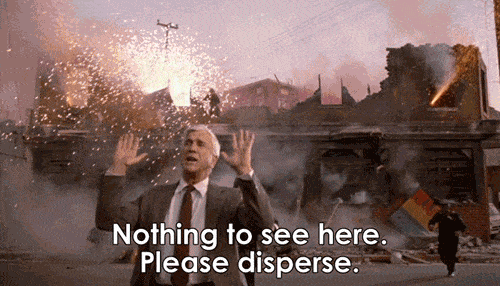A week ago, WIRED published an opinion piece lamenting the decline of the pursuit of knowledge, and claiming that Wikipedia is in crisis.
I saw the headline, "Social Media is Killing Wikipedia," in an e-mail from LinkedIn. The link led to a brief summary of the article (not the article itself...) along with an extensive discussion chain, complete with the hashtag #WikipediaFuture.
Cute.
I clicked it because I suspected the headline would prove to be an assertion that was either exaggerated or simply untrue. In essence, clickbait.
Alas, I wasn't surprised.
[But hey, I clicked it, so I guess it worked...]
But it's worth asking: is Wikipedia actually threatened? Is it really in "existential crisis," as claimed in the WIRED article?
- It's the #5 most heavily-trafficked website worldwide according to Alexa rankings
- The WIRED article admits that it's monetarily stable as well.
Because the growth rate of new contributors has flattened.
Is a flattening growth rate--NOT a decline in the number of contributors, but a flattening growth rate--indicative of a problem? Or have we simply found the ceiling of the number of people who are willing to spend time and effort editing Wikipedia for free?
Note that a "flattening" growth rate means that there is still growth! It's just not happening as fast as it used to. See the growth curve pictured below:
Note that this curve indicates that growth of E. coli is slowing down, NOT that E. coli is dying and being eradicated from the untreated well. There are only so many micro-organisms that can survive in a particular area; once we approach that cap, the growth rate will slow. Unfortunately, that trend in the growth rate doesn't mean that the E. coli will vanish from the afflicted well.
If you don't like to think about icky, deadly infectious agents, then think of the issue like this:
- Let's say I create a new website that depends on contributions from a community. Let's call it WorldCyclopedia.
- There are about 7 billion people in the world.
- Assume that all of them have Internet access, are healthy and have the physical and mental ability to contribute to WorldCyclopedia (an assumption that in no way reflects reality, but imagine for a second that it's the case).
- What happens to the growth rate of contributors to WorldCyclopedia once 6.8 billion people have signed up and contributed?
Now, in reality, not everybody wants to be bothered. Not everybody wants to participate, or trusts the website or those who run it. Not everybody has an Internet connection. Not everybody is in the physical or mental condition to contribute. Heck, not everybody can read!
So, we wouldn't ACTUALLY expect 7 billion contributors to WorldCyclopedia. The absolute ceiling is 7 billion people, but a more realistic expectation is to have a few million active contributors worldwide, and maybe only a few thousand who are actually curating the site every day.
Do people expect a constant growth rate to last forever?! That's the whole premise of the argument that Wikipedia is in danger: despite the fact that it's one of the 5 most popular sites on the World Wide Web, and despite the fact that it's receiving more monetary donations than it ever has, it's in crisis because the growth rate is slowing down?!?!?!
That premise is fatally flawed. In the LinkedIn discussion, commenters are searching for explanations for a "problem" that doesn't exist. Just another example of people failing to be properly skeptical of a claim. Brandolini's Law applies quite well here, I think...
I'm not worried about #WikipediaFuture, and you shouldn't be, either.
***
Wondering about the social media usage of actual college students?



No comments:
Post a Comment